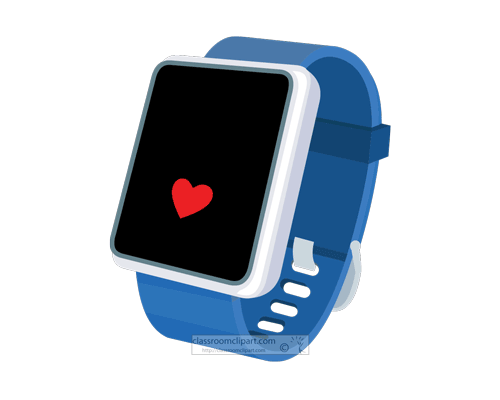Organs of the Immune System: How the Body Fights Disease
Explore the major immune system organs like the spleen, lymph nodes, tonsils, and bone marrow. Learn how they protect you from illness.
Organs of the Immune System
(Part of the Immune System Series – “The Body’s Defense Team”)
SEO Title: Organs of the Immune System: How the Body Fights Disease
SEO Description: Explore the major immune system organs like the spleen, lymph nodes, tonsils, and bone marrow. Learn how they protect you from illness.
SEO Keywords: immune system organs, spleen function, lymph nodes, tonsils, bone marrow, immune system parts, how body fights infection, immune defense organs, white blood cell production
🧠 Introduction: The Hidden Power Centers of Your Body’s Defense Team
Your immune system has many parts, and some of the most important ones are organs. These special organs create, train, and send out the white blood cells and other defenders your body needs to stay healthy. You can’t always see them or feel them, but they’re working all the time to protect you.
In this article, you’ll learn about the main organs of the immune system:
🦴 Bone Marrow – Where immune cells are made
🌰 Lymph Nodes – Tiny checkpoints that trap germs
🌀 Spleen – Filters blood and fights infection
👄 Tonsils & Adenoids – Protect the throat and nose
💧 Lymphatic Vessels – Highways for immune travel
🧠 Thymus – Where T cells learn how to fight
Let’s explore the immune system’s secret headquarters!
🦴 Bone Marrow: Where It All Begins
Bone marrow is a soft, spongy tissue found inside your bones—especially in your hips, ribs, and thighs. This is where all blood cells, including white blood cells, are made.
What Bone Marrow Does:
Produces B cells, T cells, and other white blood cells
Helps build your immune army
Keeps making new cells as old ones die
Without bone marrow, your body couldn’t make the defenders it needs to fight off illness. It's the immune system’s training base!
🌰 Lymph Nodes: Germ-Detecting Checkpoints
You have hundreds of lymph nodes in your body. These small, bean-shaped organs are part of the lymphatic system. You can often feel them in your neck when you’re sick—they may swell when your body is fighting an infection.
What Lymph Nodes Do:
Act as filters that trap viruses, bacteria, and other harmful particles
Store white blood cells like lymphocytes
Alert the immune system when an invader is found
They are like security stations, checking for trouble and alerting the rest of the immune system when something seems wrong.
🌀 Spleen: The Blood Filter
The spleen sits under your ribs on the left side of your body. It’s about the size of a fist and plays a huge role in protecting you from infections.
What the Spleen Does:
Filters blood, removing old or damaged blood cells
Stores white blood cells and platelets
Responds to germs in the blood, especially bacteria
Helps fight certain diseases like pneumonia
Think of the spleen as the blood patrol officer, keeping your bloodstream clean and ready for defense.
👄 Tonsils and Adenoids: Frontline Protectors
Your tonsils are in the back of your throat, and your adenoids are higher up, behind your nose. These are some of the first immune organs that germs run into when they try to enter your body through the mouth or nose.
What They Do:
Trap bacteria and viruses that enter through the air or food
Help activate immune cells early in an infection
Protect your lungs and digestive system from invaders
Though some people have their tonsils or adenoids removed, these organs still play a key role in your body’s first line of defense.
💧 Lymphatic Vessels: Immune Highways
Just like roads carry cars from one place to another, lymphatic vessels carry lymph fluid—a clear liquid filled with white blood cells—throughout your body.
What Lymph Vessels Do:
Connect all immune system parts together
Move white blood cells to where they’re needed
Collect germs, waste, and damaged cells
Bring fluid to lymph nodes for filtering
This network is like the transportation system of your immune team—moving soldiers to the battlefront quickly!
🧠 Thymus: The T Cell Training Camp
The thymus is a small organ located behind your breastbone. It’s where T cells go to grow up and learn how to fight germs. It’s most active when you’re a kid and shrinks as you get older.
What the Thymus Does:
Trains T cells to recognize harmful invaders
Makes sure T cells don’t attack the body’s own healthy cells
Prepares cells for future infections
The thymus is like a boot camp for your immune soldiers!
🧠 Vocabulary List
Bone marrow – The soft tissue in bones where blood cells are made
Lymph nodes – Small organs that trap germs and alert the immune system
Spleen – Organ that filters blood and stores immune cells
Tonsils – Glands in the throat that trap germs
Adenoids – Glands behind the nose that help fight infection
Lymphatic system – A network of vessels and nodes that transport immune cells
Thymus – Organ where T cells mature
White blood cells – The immune system’s defender cells
Lymph fluid – The clear liquid that carries immune cells through the body
Immune system – The body’s defense system against illness
❓ Interactive Quiz: Immune Organ Challenge
1. Which organ makes all white blood cells?
A. Spleen
B. Bone marrow
C. Thymus
D. Tonsils
2. What do lymph nodes do?
A. Make red blood cells
B. Help digest food
C. Trap and filter germs
D. Pump blood
3. Where do T cells grow and learn?
A. Liver
B. Lymph nodes
C. Bone marrow
D. Thymus
4. What part of the immune system filters your blood?
A. Spleen
B. Tonsils
C. Lungs
D. Skin
5. What connects all parts of the immune system together?
A. Nerves
B. Muscles
C. Lymphatic vessels
D. Blood vessels
🟢 Answers: 1-B, 2-C, 3-D, 4-A, 5-C
⭐ Kid-Friendly Summary
Your immune system includes many powerful organs that help you fight germs. Your bone marrow makes white blood cells. Lymph nodes filter out germs. The spleen cleans your blood. Your tonsils and adenoids guard your throat and nose. The thymus trains your T cells. And your lymphatic system moves everything where it needs to go. All these parts work together like a team to keep your body strong and healthy!
🤯 Fun and Interesting Facts
Your body has over 600 lymph nodes!
The thymus is biggest when you're a baby—it shrinks as you grow.
The spleen can hold extra blood in case of injury.
Your lymph system doesn't have a pump like your heart—it moves when you walk or move your muscles!
Tonsils can catch germs from food and air—kind of like mouth guards!





















































